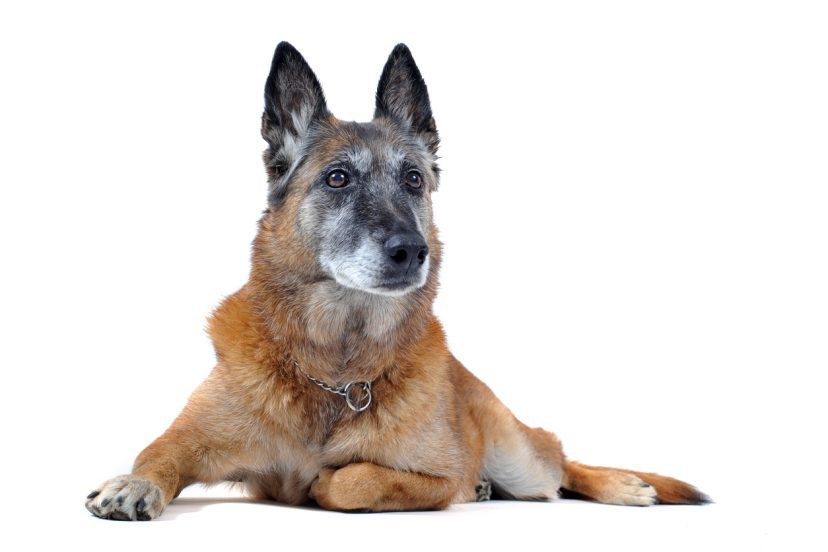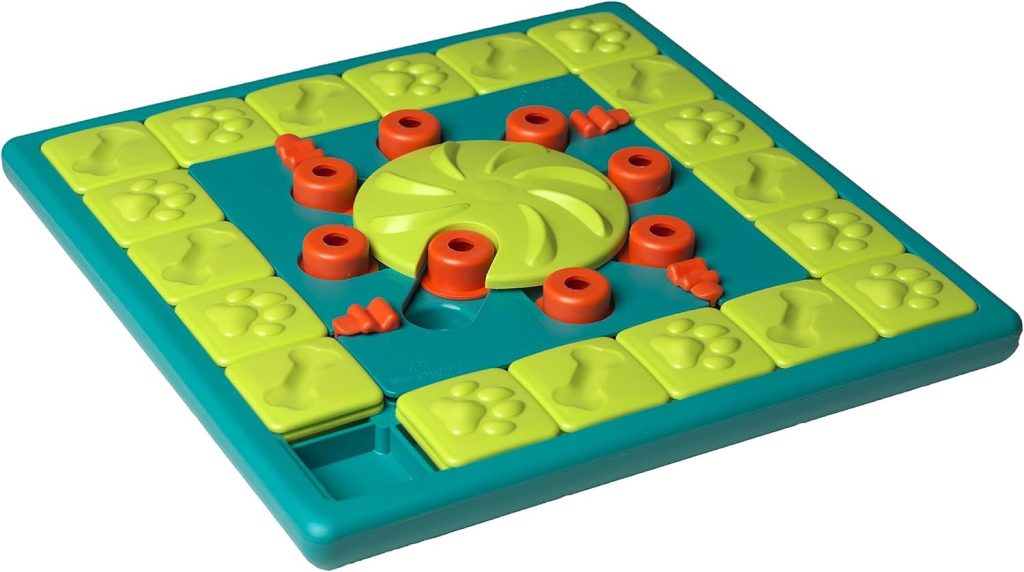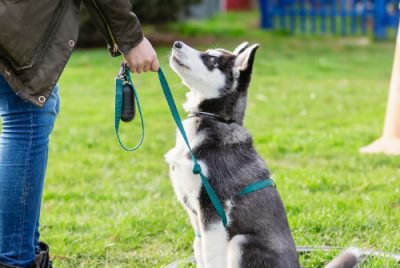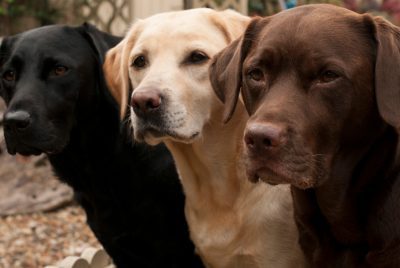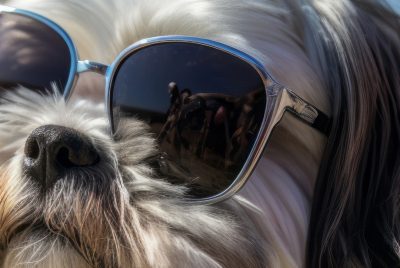Essential Senior Dog Care Tips for a Happy & Healthy Pet
Post Disclaimer
We may earn a commission for purchases made using our links. Please see our Disclaimer to learn more.
Senior Dogs 101: How to deal with mobility loss, deafness, blindness, and dementia in senior dogs
Mobility loss is a common issue for senior dogs. You can help your dog by providing ramps or steps to help them navigate the house and yard. Additionally, consider providing soft bedding and avoiding slippery surfaces to prevent falls. Senior dogs may also experience deafness, blindness, dementia, and inflammation. For deaf dogs, you can use hand signals or vibrations to communicate with them. Dogs with vision impairment, particularly those experiencing the effects of aging, greatly benefit from a consistent environment and clear verbal signals. When dealing with dementia, it is advisable to uphold regular routines and minimize potential stressors in their surroundings. Collaborating closely with your veterinarian is crucial in ensuring optimal care for your older canine companion.
What are some common health issues that senior dogs face?
Some common health issues that senior dogs face include arthritis, dental problems such as periodontal disease, obesity, cognitive decline, and vision/hearing loss. It’s important to provide regular veterinary care, a balanced diet, exercise, mental stimulation, and other measures to help manage and prevent these issues in aging dogs, ultimately improving their quality of life.
- Agile Joints - Dog Arthritis and Joint Support by Pet Wellbeing
- Merchant:Pet Wellbeing Inc.
Senior Dog Care Tips: Expert Advice for a Happy Pet
There’s something profoundly special about having a senior dog in your life, especially during cold weather. The years of bonding, companionship, and shared experiences create a connection that’s hard to articulate. But with these golden years come new challenges and responsibilities. The intent of this article is to guide you on how to make your old friend’s later years as happy and healthy as possible.
Understanding Your Senior Dog 
Recognizing Signs of Aging in Dogs
Just like us, dogs age, and their needs change depending on their stage of life, particularly in old age. The graying fur, slower movements, and changes in behavior are among the noticeable signs of an old dog. But many changes are less obvious. Keep a keen eye on any shifts in their sleeping patterns, appetite, and overall demeanor.
Sometimes your dog will have a very difficult time moving off and on your furniture like they used to. It may be time to invest in a ramp so that they don't hurt themselves.
Understanding Changes in Behavior
Many senior dogs may experience decreased activity levels, increased anxiety, or confusion. Remember, behavior changes can be a sign of underlying health issues, such as a lump, so consult your vet if you notice any significant changes.
Healthcare Tips for Senior Dogs
Importance of Regular Vet Check-ups
Regular veterinary check-ups become increasingly crucial as your dog ages. These check-ups can catch health issues early and keep your dog feeling their best, ensuring they receive the necessary checkups from a veterinarian to maintain their health.
Dental Care
Older dogs are more prone to dental disease, including issues with their dog's teeth. Regular teeth cleanings, both at home and professionally, can prevent painful dental issues and improve overall dental health, ensuring the longevity of your dog's teeth. If it is difficult for you to brush your dogs teeth try Oxyfresh water additive.
Eye Care
Vision can decline in senior dogs, leading to cataracts or other eye issues, as well as joint problems and mobility issues. Regular eye check-ups can help keep their sight as sharp as possible and prevent the buildup of plaque on slippery surfaces.
Nutrition for Senior Dogs
Adjusting Diet for Senior Dogs
Older dogs often require fewer calories but more fiber, lean proteins, and certain nutrients. A diet formulated for senior dogs, also known as a senior diet, can help maintain healthy gums, a healthy weight, and overall health, including weight loss.
Hydration: A Crucial Part of Senior Dog Care
Ensure your senior dog has access to plenty of freshwater bowls at all times to support kidney function and overall hydration.
Physical Activity and Senior Dogs
Exercise: Tailored to Their Pace
Regular, gentle physical exercise helps keep senior dogs at a healthy weight and maintains joint mobility. Remember, it’s about quality, not quantity.
Physical Therapy and Massage
Therapies like hydrotherapy or therapeutic massage can help keep your senior dog’s muscle mass strong and relieve joint issues and arthritis pain, including chronic pain. It is important to ensure that the therapy sessions take place in a safe environment, free from hazards such as slippery floors, to prevent any accidents or injuries.
Cognitive Stimulation for Senior Dogs
Keeping Their Mind Active
Interactive games and puzzle toys can keep your senior dog’s mind sharp, helping to delay canine cognitive dysfunction. Additionally, providing high-quality and nutritious dog food can also support your dog's cognitive health as they age and alleviate aches associated with aging.
Comfortable Living Environment
Adjusting Your Home for Senior Dogs
Consider softer bedding for arthritic joints, ramps for easier mobility, and easy access to resources such as food, water, potty areas, mats, traction, and rugs for your furry friend to relax on the couch.
Emotional Support and Love

The Power of Your Presence
Perhaps the most crucial part of senior dog care is your love and companionship. Your presence provides them with comfort, security, and happiness in their golden years.
Caring for a senior dog is a rewarding journey filled with mutual love and respect. By understanding their needs and making necessary adjustments, you can ensure the care of your senior dog and their golden years are filled with comfort and contentment. Just keep spoiling them and giving them all your love.
How do you care for a senior dog?
Caring for a senior dog involves regular veterinary check-ups, a nutritious diet tailored to their age and health, moderate exercise, providing a comfortable and safe environment, managing any chronic conditions or pain, and giving them plenty of love and attention.
With proper care and attention, you can help ensure that your senior dog stays happy and comfortable despite arthritis.
Arthritis in Dogs

Arthritis is a common ailment in senior dogs that can cause pain and discomfort. If left untreated, it can severely affect their mobility and overall quality of life. To help manage arthritis in dogs, it's important to provide them with regular exercise, a healthy diet, and joint supplements. Additionally, investing in an orthopedic bed or ramp can make it easier for your dog to move around without putting too much stress on their joints. Regular check-ups with your veterinarian can also help catch arthritis early on and prevent it from worsening.
- Joint Rescue Super Strength Chewable for Dogs by Pet Wellbeing
- Merchant:Pet Wellbeing Inc.
What things make your senior dog the happiest?
Comfortable living environment: Providing a warm and cozy bed, ensuring easy access to food and water, and making sure the home is safe and free from hazards.
Regular exercise: Maintaining an appropriate level of physical activity for your senior dog's health and well-being.
Mental stimulation: Engaging in activities such as puzzle toys or training exercises to keep their minds active.
Proper nutrition: Feeding a balanced diet that meets the specific nutritional needs of senior dogs.
Veterinary care: Regular check-ups with a veterinarian to address any health concerns or age-related issues.
Love and attention: Spending quality time with your senior dog, providing affection, and keeping them company.
Remember, every dog is unique, so it's important to pay attention to your individual pet's preferences and needs to ensure their happiness during their golden years.
Even though older dogs are less demanding than very old dogs, you still have to be mindful of the fact that your pet's needs will change as they age.
It's not uncommon for senior dogs to develop separation anxiety since they tend to become more attached to their owners and may feel anxious when left alone. The same things that can cause general anxiety can also lead to separation-related issues later in life.
Frequently Asked Questions
How do I know if my dog is considered ‘senior’? The categorization of a dog as ‘senior’ can vary depending on the breed and size. Generally, dogs are considered seniors when they reach about 7-10 years old, but larger breeds may reach this stage earlier than smaller breeds.
What are some common health issues in senior dogs? Senior dogs may experience a range of health issues, including arthritis, dental disease, loss of vision, obesity, diabetes, kidney disease, and dementia, among others. Regular vet check-ups are crucial in early detection and treatment of these conditions.
How often should a senior dog visit the vet? While it can depend on your dog’s overall health and specific conditions, generally, senior dogs should have a veterinary check-up at least twice a year. More frequent visits may be necessary if they have chronic health issues.
Do senior dogs need special food? Often, yes. Senior dogs typically need a diet lower in calories, but higher in fiber, with a balanced amount of proteins, fats, and essential nutrients. Some may require special diets for specific health conditions. Always consult with your vet to establish the best diet plan for your senior dog.
What can I do to help my senior dog with arthritis? Several strategies can help manage arthritis in senior dogs: maintaining a healthy weight to reduce joint stress, regular but gentle exercise to keep joints flexible, providing soft bedding, using pet-friendly ramps to aid mobility, and certain medications or supplements as prescribed by your vet. In some cases, physical therapies like massage or hydrotherapy might also be beneficial.
Note: This is a broad guideline, and the specifics may vary based on your dog’s breed, size, health condition, etc. Always consult with a vet for advice tailored to your individual dog’s needs.

